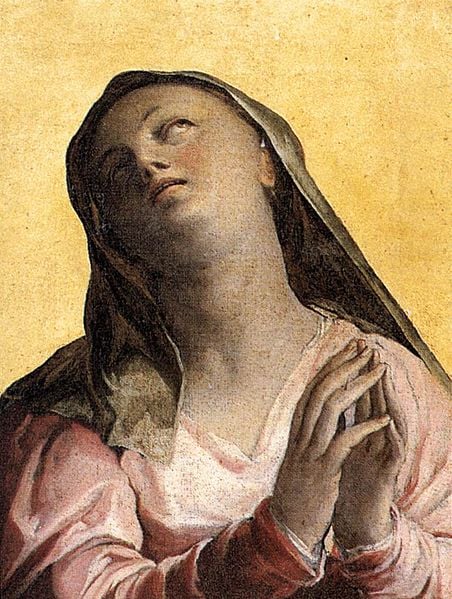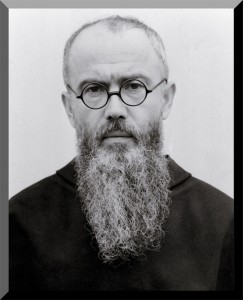
Due to circumstances beyond my control, I will keep this very brief, with the help of my column this month, at The Catholic Answer:
For most of my life, the assumption of Mary existed as little more, for me, than a head-scratcher of a dogma.
I understood that Elijah and Enoch had been assumed into heaven, so if I considered Mary’s assumption at all, it was simply to shrug it off: “Mary was assumed into heaven. Sure, why not?” The whys and wherefores of the matter were so far above my paygrade that they didn’t seem worth pondering.
All of that changed for me when I took a class in anatomy and physiology. As marvelous as it was to learn about how “wonderfully and fearfully” we are made — what with blood cells forming and fading, and bones and tissue becoming oxygenated and cleansed via blood and breath — nothing presented in the class coaxed an audible reaction from me until we studied the process of microchimerism. As soon as the professor introduced the process, my Catholic bell was rung: “But that completely explains the Assumption!” I said aloud in the midst of my startled classmates. The professor stared at me for a moment with a puzzled expression and said, “Oka-a-ay, anyway, the thing about microchimerism…”
The thing about microchimerism is that it so profoundly explains and justifies our dogma that it should be included in our Mariological catechesis, where people can both appreciate a demonstration of how science and religion can complement and complete each other, and marvel in awestruck wonder that our Church had reasoned out this reality long ago and without the aid of microscopes. In the simplest of terms, microchimerism is the process by which a smattering of cells live within a host body but are completely distinct from it. In human fetomaternal microchimerism (or “fetal cell microchimerism”), every child leaves within his mother a microscopic bit of himself — every pregnancy, brought to delivery or not, leaves a small amount of its own cells within the body of the mother — and those cells remain within her forever.
As the only practicing Catholic in the classroom mentioned above, can you blame me for my gratified outburst? Microchimerism explained for me the very whys and wherefores of a dogma that had previously seemed like little more than piety on a sentimental rampage, leaving me too cowed to care. Suddenly, it all made sense: A small amount of Christ Jesus’ cells remained within Mary, for the whole of her life. Where we Catholics have a limited experience of Christ’s flesh commingling within our own upon reception of the holy Eucharist, Mary was a true tabernacle within which the Divinity did continually reside.
In the Book of Psalms we read about how the Holy One will not undergo corruption (see 16:10). Christ’s divine body did not undergo corruption. It follows that His mother’s body, containing cellular traces of the Divinity (and a particle of God is God, entire) could not be permitted to decay, either. The science makes the theology accessible, because, suddenly, there is no need for guessing: at her Dormition, Our Lady’s body, holding Christ within it, could not remain on earth; of course, it would have to join itself to Christ in the heavenly dimension.
You can read the rest, here. Also check out Max Lindenman and Dave Armstrong for precisely the sort of “different perspectives” on this Dogma, as well as Tom Zampino, who writes on the Assumption while celebrating his first year at Patheos.
 Today is the feastday of the great Marian-minded Saint (and Subversive) Maximilian Kolbe:
Today is the feastday of the great Marian-minded Saint (and Subversive) Maximilian Kolbe:
He’d been arrested, in part, for hiding and assisting Jews — 2000 of them. Subversive. He consented to being thrown into a hole and starved to death; asks for nothing, remains cordial and relies wholly on hymns and prayers and psalms and canticles. Such subversive power, in all of that — subversive and victorious. The world calls faith stupid and mocks it. That’s why the world will ultimately lose.
Don’t forget to have a chat with bold Kolbe, today! And Kathryn Lopez has beautiful stuff about him!
Maximilian Kolbe, Pray for Us! Holy Mary, Mother of God, Pray for Us!















